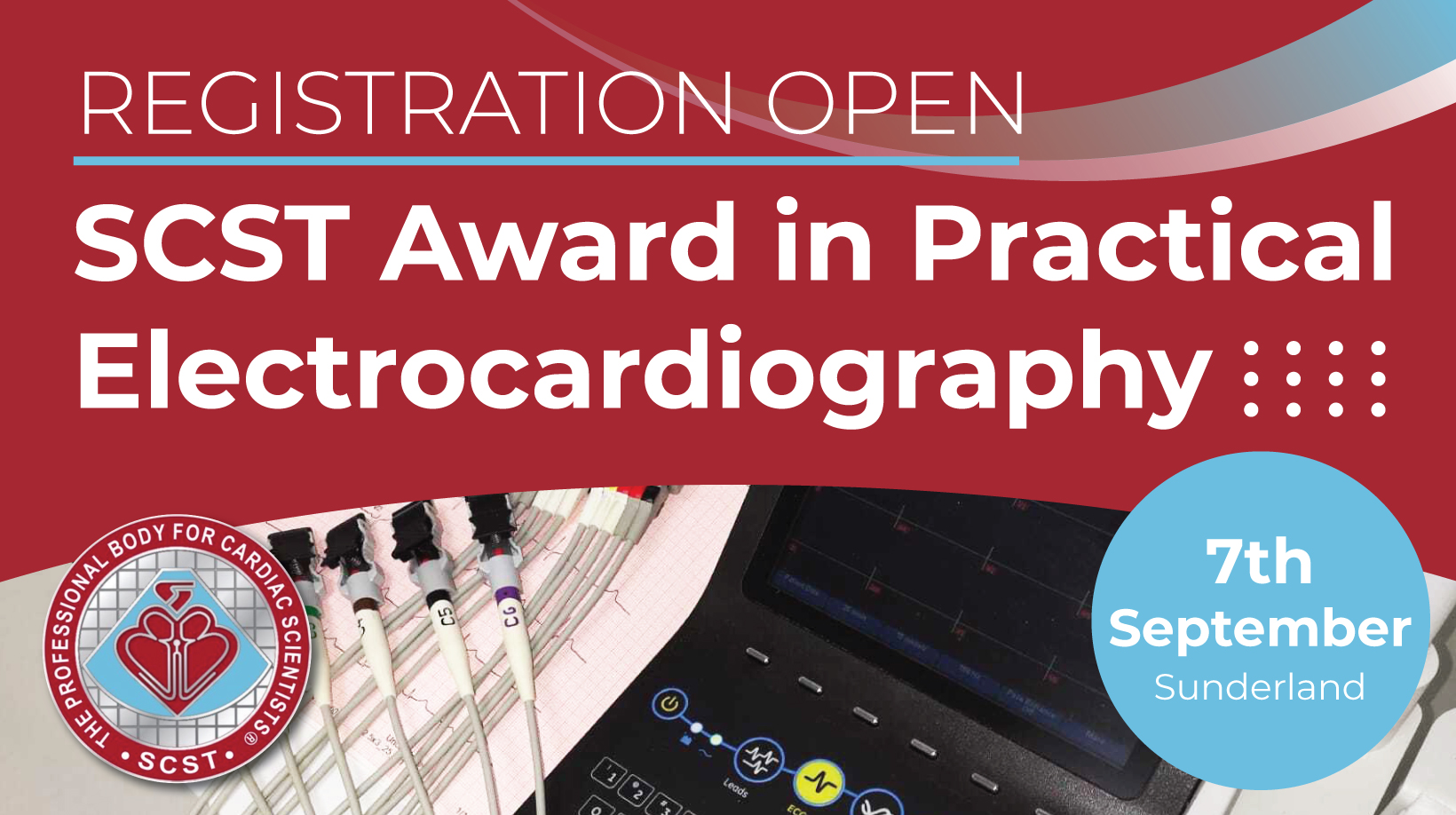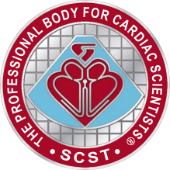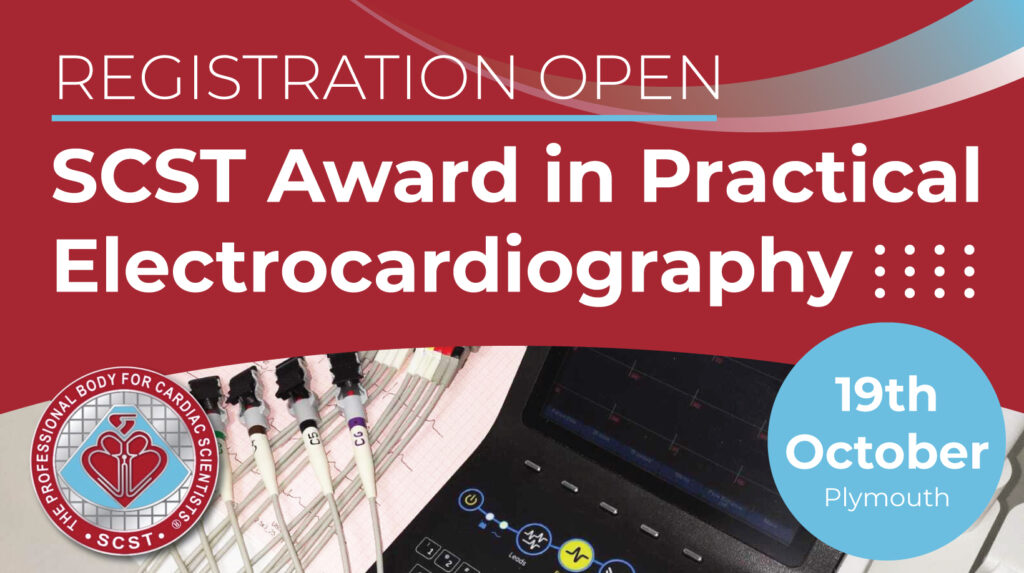
SCST Award in Practical Electrocardiography | Sept 2024
7 September

SCST Award in Practical Electrocardiography
The Society makes this award to candidates who can demonstrate the ability to safely and accurately record a 12-lead resting electrocardiogram (ECG) under examination conditions. This is designed as an entry-level qualification for any practitioner wanting to demonstrate the skills needed to perform ECGs in a clinical environment. Candidates will be expected to demonstrate their ability through a practical examination. Supplemental questions will be used to check underpinning knowledge on ECG quality.
Exam dates:
- Sat 7th Sept 2024, Sunderland
BOOK YOUR PLACE
Suitable for all Healthcare Professionals who perform 12 lead resting ECGs
- Cardiographers, Snr Cardiographers, Associate Practitioners,Physiologists in Cardiology
- Healthcare Assistants, Nurses, Primary Care staff, GP Practice staff
- Emergency Care Assistants, Emergency Medical Technicans, Paramedics
- Medical doctors, Advanced Clinical Practitioners
- Respiratory Physiologists
- Medical Physics Physiologists
Cost: £150


